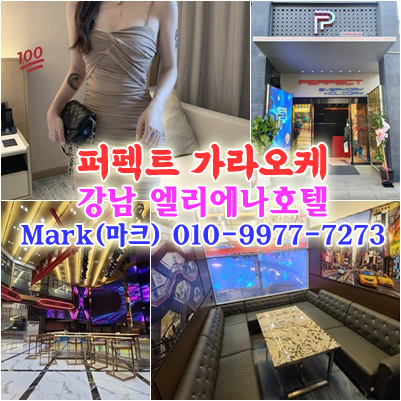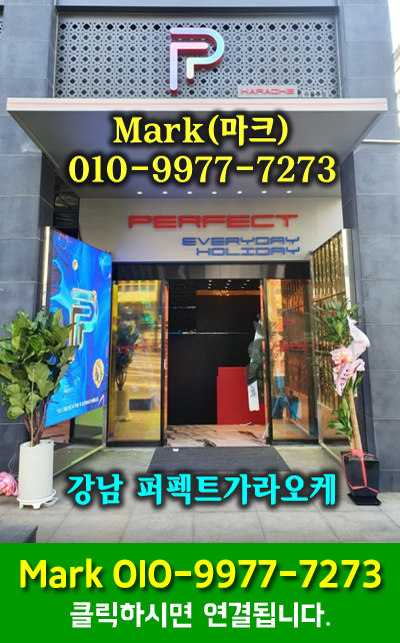Do You Know How To ADHD Medication List? Learn From These Simple Tips
컨텐츠 정보
- 12 조회
-
목록
본문
Here's a complete ADHD medication list that includes stimulants, non-stimulants, and specific aspects to consider. This article will examine the various types of ADHD medications, as well as their adverse effects as well as precautions and interactions with other drugs. Below is a list of the most frequently prescribed drugs. Visit the American Academy of Pediatrics' official website to find out more about ADHD medications. It's also helpful to understand how to use the ADHD medication list and what you should be thinking about before taking one.
Stimulants
There are a variety of ADHD medication. The most commonly used is a stimulant. These drugs have the highest success rate however, they also have risks, such as negative side effects and the potential for abuse. Non-stimulants, however, ADHD medication list on the other side, are slow to treat the symptoms of ADHD. These medicines work to improve general concentration and impulse control however, they require continuous use and medications for adhd may take several weeks to show results.
Unfortunately, the misuse of prescription stimulants may cause substance use disorders, and in some cases addiction. Long-term use of stimulants could cause tolerance, which means the user must take higher doses more frequently. These drugs can lead to drug abuse, which could be fatal and even deadly. If you suspect that your child could be using stimulants in a manner that isn't appropriate you should discuss them with your health professional.
Atypical antidepressants, blood-pressure medications and Strattera are all examples of non-stimulants. These medications are prescribed for ADHD when stimulants fail or have caused unwanted side effects. ADHD medications can make anxiety worse so it is crucial that your child doesn't take stimulants when they are accompanied by anxiety. There are a variety of ADHD medication alternatives. A typical non-stimulant is the non-stimulant Intuniv XR. It is recommended for children between 6-12 who exhibit hyperactivity, impulsivity, or hyperactivity.
The use of stimulants is not recommended for people who have a history of drug abusesince they are not as effective. The patient's weight, age as well as their tolerance and sensitivity to stimulants will determine the dose. Additionally, extended-release stimulants should be taken in conjunction with meals. For children who have difficulty swallowing, extended-release capsules that contain beads are available. Non-stimulants can be used when stimulants are not effective or cause adverse effects.
Antidepressants
While initially developed for different conditions, antidepressants have proven effective in treating ADHD. They can improve concentration and mood and are beneficial to children with ADHD. There are many antidepressants that are available, including atomoxetine (Strattera) as well as wellbutrin ER, and Guanfacides. These drugs require patience when beginning treatment. They can have undesirable side effects, and may not be suitable for every child.
Most antidepressants relieve the symptoms of depression and anxiety However, they can also be effective for people with bulimia and chronic pain. While antidepressants might not be efficient for everyone, they can be very effective when combined with the support of family members and talk therapy. Antidepressants could take several weeks before they start working. However, you'll notice improvements in your sleep, appetite and energy levels as well as your mood. If you're ready to begin using an antidepressant medication, consult with your doctor about the adverse effects and whether they're worth it.
Long-acting Clonidine (and Guanfacine) have been approved by the FDA as ADHD treatments. They can be used to reduce blood pressure, improve patience, decrease impulsivity, improve task-oriented behavior, and treat high blood pressure. They are also employed in conjunction with stimulants, such as amphetamines and methylphenidate. While nonstimulants are not recommended for ADHD, they may enhance the mental functioning and behavior.
Anyone who is prescribed a psychostimulant to treat ADHD must be aware of its side effects. Learn the best time to take the medication as well as how often you should take it, and which ingredients to stay clear of. Finding the ideal dose for each individual is a trial-and-error procedure, and the most effective dosage will vary from person to person. Begin with the lowest dosage and increase it gradually as time passes.
Behavioral therapy
A successful treatment plan should include continuous monitoring of the effects of ADHD medication and other behavioral treatments for ADHD. Changes in the medication are also recommended in the event of a need. These suggestions are provided by the American Academy of Pediatrics. ADHD can affect the ability to sit still, be attentive and interact with other children and family members. Children with ADHD often exhibit disruptive behavior and require behavioral therapy to manage their symptoms. The therapy should begin as soon as possible after the diagnosis has been confirmed.
Your pediatrician will need to work closely with you in order to determine the appropriate medication. Your doctor will ask you for a rating of your child's behavior and ask teachers to monitor your child's progress. They will also monitor your vital signs and look for any side effects. Congenital heart disease and congenital heart diseases and other ailments can affect the effectiveness of stimulants. In addition, more than half of children with tic disorders also suffer from ADHD.
Strattera, atypical antidepressants as well as certain blood pressure medication are all non-stimulant drugs. These medications can be utilized in conjunction with behavioral therapy for ADHD. For children less than six years old, a program of behavioral education is the preferred alternative to drug therapy. A behavioral class intervention could be beneficial for children and adolescents who are as young as twelve years older. These medicines are not recommended for children less than 3 years old. of age.
Behavioral therapy for ADHD can help your child develop social skills and develop appropriate behavior. Some ADHD therapies focus on teaching children new behavior to help them manage stress, improve their organizational skills, and persist in achieving goals. There are several licensed therapists that are part of the BetterHelp network. BetterHelp may receive commissions if you decide to consult a therapist via their service. You can find a licensed therapist on BetterHelp's website and calling an area health care provider.
Long-acting formulations
While ADHD medications are available in long-acting and short-acting formulas There are some differences between the two. Short-acting formulations can be used for dosage titration and could worsen co-morbidities. For children and adolescents using long-acting formulations, they are advised. Some of the main reasons for using long-acting formulations include cost-benefit and compliance analyses.
These ADHD medications are stimulants which alter brain chemical like dopamine and norepinephrine. The effects of these stimulants will differ from one person to the next. Your therapist will closely determine which medication is best for you. Long-acting medications, for example can reduce the risk of dependence and abuse. They are also more effective for children than for adults.
Long-acting ADHD medication is more effective and simpler to adjust dosages. Long-acting formulations assist patients adhere to the prescribed dosage for a longer period of time. Long-acting medications can treat serious ADHD symptoms. They may be more efficient than immediate-acting medications, however, it is crucial to think about your personal needs and preferences when choosing the most effective ADHD medication.
Pediatricians are leading the way by using long-acting ADHD medication. Both children and adults are often prescribed long-acting medication. Long-acting medicines account for nearly half of ADHD prescriptions in the early years of childhood. For children the drugs have been approved for use by doctors. However, long-acting formulations for ADHD are more popular for treatment for children than for adults.
Side effects
Some children experience no adverse side effects. Some may experience temporary, minor side effects. The adverse effects of ADHD medication can be varied depending on the child's responses to the medication and on the individual. Consult your physician in case you are experiencing any adverse reactions and consider a different medication. Supplements may be necessary to help prevent weight loss in some children. However, most children experience minimal side effects. Below are the most common adverse effects associated with ADHD medication.
Be aware of any side effects and possible complications if you are taking ADHD medication for your child. These adverse reactions can be dealt with by taking it each day. Depending on the extent and duration of side effects, you may need the medication for several weeks or even months. Watch out for changes in your child's mood or behavior when they are taking the medication. Discuss the potential risks of the medication with your child's doctor and his or her medical history. Also, you can learn about the signs and symptoms of these side effects and document them to the doctor.
In certain instances, your child's ADHD medication could have a rebound effect. This happens when the drug begins to wear off fast and removes the brain receptors too quickly. You can decrease the dosage by half an hour prior to when the rebound effects begin. Rebound effects could indicate that your dosage of medication needs to be adjusted or that you are required to change medications. You should also discuss the potential adverse side effects of ADHD medication with your doctor.
Regardless of the drug, adhd medication for adults medication may cause adverse effects in children. ADHD medication could have had a negative effect on some children. It can be difficult to break the dependence. Many of the children used the drugs for a long time making it difficult for doctors to treat their compulsions. The Drake Institute of Neurophysical Medicine, (DINM), aims to reduce ADHD adverse effects by using a combination of psychology, neuroscience and medical. These methods have been proven to have clinical success in over 80 percent of patients.
Stimulants
There are a variety of ADHD medication. The most commonly used is a stimulant. These drugs have the highest success rate however, they also have risks, such as negative side effects and the potential for abuse. Non-stimulants, however, ADHD medication list on the other side, are slow to treat the symptoms of ADHD. These medicines work to improve general concentration and impulse control however, they require continuous use and medications for adhd may take several weeks to show results.
Unfortunately, the misuse of prescription stimulants may cause substance use disorders, and in some cases addiction. Long-term use of stimulants could cause tolerance, which means the user must take higher doses more frequently. These drugs can lead to drug abuse, which could be fatal and even deadly. If you suspect that your child could be using stimulants in a manner that isn't appropriate you should discuss them with your health professional.
Atypical antidepressants, blood-pressure medications and Strattera are all examples of non-stimulants. These medications are prescribed for ADHD when stimulants fail or have caused unwanted side effects. ADHD medications can make anxiety worse so it is crucial that your child doesn't take stimulants when they are accompanied by anxiety. There are a variety of ADHD medication alternatives. A typical non-stimulant is the non-stimulant Intuniv XR. It is recommended for children between 6-12 who exhibit hyperactivity, impulsivity, or hyperactivity.
The use of stimulants is not recommended for people who have a history of drug abusesince they are not as effective. The patient's weight, age as well as their tolerance and sensitivity to stimulants will determine the dose. Additionally, extended-release stimulants should be taken in conjunction with meals. For children who have difficulty swallowing, extended-release capsules that contain beads are available. Non-stimulants can be used when stimulants are not effective or cause adverse effects.
Antidepressants
While initially developed for different conditions, antidepressants have proven effective in treating ADHD. They can improve concentration and mood and are beneficial to children with ADHD. There are many antidepressants that are available, including atomoxetine (Strattera) as well as wellbutrin ER, and Guanfacides. These drugs require patience when beginning treatment. They can have undesirable side effects, and may not be suitable for every child.
Most antidepressants relieve the symptoms of depression and anxiety However, they can also be effective for people with bulimia and chronic pain. While antidepressants might not be efficient for everyone, they can be very effective when combined with the support of family members and talk therapy. Antidepressants could take several weeks before they start working. However, you'll notice improvements in your sleep, appetite and energy levels as well as your mood. If you're ready to begin using an antidepressant medication, consult with your doctor about the adverse effects and whether they're worth it.
Long-acting Clonidine (and Guanfacine) have been approved by the FDA as ADHD treatments. They can be used to reduce blood pressure, improve patience, decrease impulsivity, improve task-oriented behavior, and treat high blood pressure. They are also employed in conjunction with stimulants, such as amphetamines and methylphenidate. While nonstimulants are not recommended for ADHD, they may enhance the mental functioning and behavior.
Anyone who is prescribed a psychostimulant to treat ADHD must be aware of its side effects. Learn the best time to take the medication as well as how often you should take it, and which ingredients to stay clear of. Finding the ideal dose for each individual is a trial-and-error procedure, and the most effective dosage will vary from person to person. Begin with the lowest dosage and increase it gradually as time passes.
Behavioral therapy
A successful treatment plan should include continuous monitoring of the effects of ADHD medication and other behavioral treatments for ADHD. Changes in the medication are also recommended in the event of a need. These suggestions are provided by the American Academy of Pediatrics. ADHD can affect the ability to sit still, be attentive and interact with other children and family members. Children with ADHD often exhibit disruptive behavior and require behavioral therapy to manage their symptoms. The therapy should begin as soon as possible after the diagnosis has been confirmed.
Your pediatrician will need to work closely with you in order to determine the appropriate medication. Your doctor will ask you for a rating of your child's behavior and ask teachers to monitor your child's progress. They will also monitor your vital signs and look for any side effects. Congenital heart disease and congenital heart diseases and other ailments can affect the effectiveness of stimulants. In addition, more than half of children with tic disorders also suffer from ADHD.
Strattera, atypical antidepressants as well as certain blood pressure medication are all non-stimulant drugs. These medications can be utilized in conjunction with behavioral therapy for ADHD. For children less than six years old, a program of behavioral education is the preferred alternative to drug therapy. A behavioral class intervention could be beneficial for children and adolescents who are as young as twelve years older. These medicines are not recommended for children less than 3 years old. of age.
Behavioral therapy for ADHD can help your child develop social skills and develop appropriate behavior. Some ADHD therapies focus on teaching children new behavior to help them manage stress, improve their organizational skills, and persist in achieving goals. There are several licensed therapists that are part of the BetterHelp network. BetterHelp may receive commissions if you decide to consult a therapist via their service. You can find a licensed therapist on BetterHelp's website and calling an area health care provider.
Long-acting formulations
While ADHD medications are available in long-acting and short-acting formulas There are some differences between the two. Short-acting formulations can be used for dosage titration and could worsen co-morbidities. For children and adolescents using long-acting formulations, they are advised. Some of the main reasons for using long-acting formulations include cost-benefit and compliance analyses.
These ADHD medications are stimulants which alter brain chemical like dopamine and norepinephrine. The effects of these stimulants will differ from one person to the next. Your therapist will closely determine which medication is best for you. Long-acting medications, for example can reduce the risk of dependence and abuse. They are also more effective for children than for adults.
Long-acting ADHD medication is more effective and simpler to adjust dosages. Long-acting formulations assist patients adhere to the prescribed dosage for a longer period of time. Long-acting medications can treat serious ADHD symptoms. They may be more efficient than immediate-acting medications, however, it is crucial to think about your personal needs and preferences when choosing the most effective ADHD medication.
Pediatricians are leading the way by using long-acting ADHD medication. Both children and adults are often prescribed long-acting medication. Long-acting medicines account for nearly half of ADHD prescriptions in the early years of childhood. For children the drugs have been approved for use by doctors. However, long-acting formulations for ADHD are more popular for treatment for children than for adults.
Side effects
Some children experience no adverse side effects. Some may experience temporary, minor side effects. The adverse effects of ADHD medication can be varied depending on the child's responses to the medication and on the individual. Consult your physician in case you are experiencing any adverse reactions and consider a different medication. Supplements may be necessary to help prevent weight loss in some children. However, most children experience minimal side effects. Below are the most common adverse effects associated with ADHD medication.
Be aware of any side effects and possible complications if you are taking ADHD medication for your child. These adverse reactions can be dealt with by taking it each day. Depending on the extent and duration of side effects, you may need the medication for several weeks or even months. Watch out for changes in your child's mood or behavior when they are taking the medication. Discuss the potential risks of the medication with your child's doctor and his or her medical history. Also, you can learn about the signs and symptoms of these side effects and document them to the doctor.
In certain instances, your child's ADHD medication could have a rebound effect. This happens when the drug begins to wear off fast and removes the brain receptors too quickly. You can decrease the dosage by half an hour prior to when the rebound effects begin. Rebound effects could indicate that your dosage of medication needs to be adjusted or that you are required to change medications. You should also discuss the potential adverse side effects of ADHD medication with your doctor.
Regardless of the drug, adhd medication for adults medication may cause adverse effects in children. ADHD medication could have had a negative effect on some children. It can be difficult to break the dependence. Many of the children used the drugs for a long time making it difficult for doctors to treat their compulsions. The Drake Institute of Neurophysical Medicine, (DINM), aims to reduce ADHD adverse effects by using a combination of psychology, neuroscience and medical. These methods have been proven to have clinical success in over 80 percent of patients.
관련자료
-
이전
-
다음
댓글 0
등록된 댓글이 없습니다.












